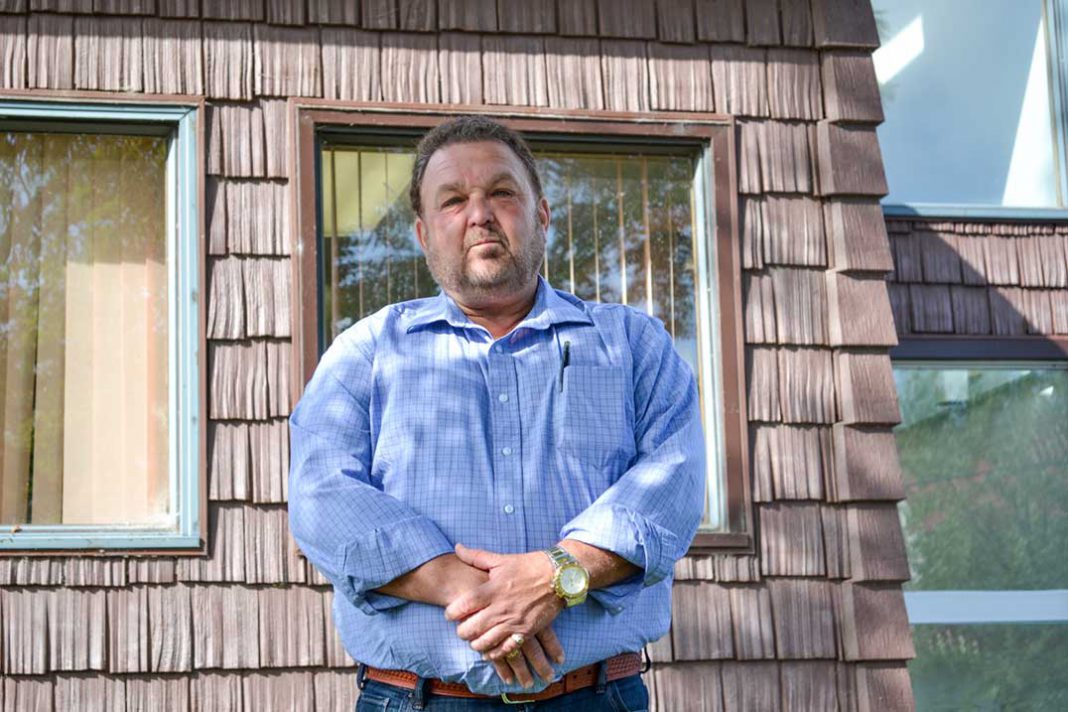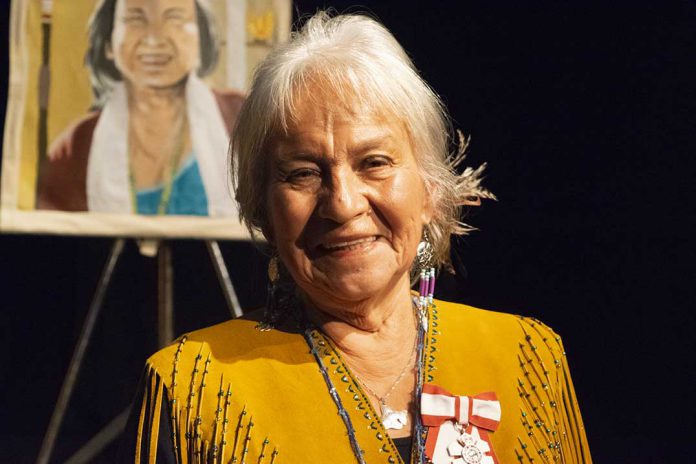GREEN BAY—On October 5, Green Bay’s Paul Skippen got the news he was finally waiting for, kind of. Justice Andrew L. Buttazzoni, who presided over Mr. Skippen’s appeal in the ‘case of the golden goose,’ as it has come to be known, agreed with the original order that Mr. Skippen should pay a fine for shooting a goose out of season and without a permit. When it came to shooting from the road, however, the judge ordered a retrial, although he didn’t recommend it.
The charges, which stem from May of 2015, were laid when Mr. Skippen shot a goose out of season and, according to two witnesses, from a roadway. Mr. Skippen has always admitted to shooting the goose without the required permit but has maintained that he did so to save his crops which were being decimated by Canada geese and other wildlife. Mr. Skippen did receive a permit a few days later and shot more geese, leaving a grisly warning to other geese who dared land in his field in the form of a dead goose hanging from a tripod.
What followed were months of continuous court dates, most often with a large contingent of Island farmers there to support Mr. Skippen and his cause.
The trial, which took four days to complete and wrapped up on October 6, 2016, saw Mr. Skippen found guilty of two charges: discharging a firearm on a public right-of-way contrary to clause 17(1)(e) of the Fish and Wildlife Conservation Act for which he was fined $1,250 together with forfeiture of his firearm. He was also found guilty of unlawfully hunting a migratory bird out of season contrary to subsection 5(4) of the Migratory Birds Regulations thereby committing an offence contrary to section 13 of the Migratory Birds Convention Act and was fined $300 for this offence.
“The trial was hard-fought,” Justice Buttazzoni writes in his judgment. “From a review of the transcripts one could say that the proceedings got nasty at times. I appreciate that trials can be tedious, taxing and challenging for all parties involved. The transcripts revealed frustration on the part of defence counsel—frustration which at times led to unfortunate, acerbic and sarcastic exchanges with Crown counsel and, on occasion, with the Justice of the Peace.”
Mr. Skippen and his lawyer, Brad Allison, appealed the charges, accusing Justice of the Peace Darlene Hayden of ‘reverse engineering’ the evidence to assist the Crown and thereby not allowing Mr. Skippen a fair trial.
Justice Buttazzoni writes that while Justice Hayden may have made procedural and evidentiary errors during the trial, he concluded that she did not exhibit bias or seek to assist the Crown in its prosecution of Mr. Skippen. The justice did, however, take the Crown counsel to task over several items he deemed inappropriate throughout the trial.
“The issue of trial fairness is intertwined with the issue of bias,” Justice Buttazzoni continues. “Put bluntly, the appellant (Mr. Skippen) suggests that the Justice of the Peace bent over backwards to help the prosecutor. While errors were made during the trial, I do not agree with the appellant’s suggestion. Far from it. The Justice of the Peace found herself in a heated and strongly contested trial. Notwithstanding invectives that bordered precariously on unacceptable rudeness, the Justice of the Peace remained polite and calm. She did not respond in kind.”
Justice Buttazzoni did find error with the Justice of the Peace’s use of Conservation Officer Kyle Wood’s testimony in her findings, specifically his testimony about how far shell casings will fall from a gun once it’s been fired. CO Wood was used as a witness by the Crown counsel but, to Mr. Skippen and his lawyer, the CO’s testimony fell strongly into the expert category. When Mr. Allison raised this fact during the trial, the Crown counsel stated that the CO, who is also a firearms instructor, was not an expert witness but was asked to give an opinion on the matter.
“The officer was clearly providing an expert opinion when it came to the location of the wads (casings) and the purported location of the appellant when he discharged his firearm,” Justice Buttazzoni wrote. “He was not qualified as an expert and this evidence should not have been admitted. With all due respect to the Justice of the Peace, the evidence was not introduced simply to explain the officer’s grounds for charging the accused. Furthermore, a review of her reasons reveals that she inappropriately relied on this opinion evidence to find that the accused was standing on the roadway when he shot the goose. The opinion evidence was used for establishing the appellant’s guilt and not just for the purpose of establishing the officer’s grounds.”
Justice Buttazzoni set aside Mr. Skippen’s conviction in the charge of shooting from a roadside and called for a new trial date to be set. “My only further observation would be that given the passage of time, the court resources already expended and the conflicting Crown evidence, one would have to seriously question what public interest would be served by a further trial. That, however, is not a matter that I have to decide,” he concluded.
The ruling on the charge of shooting a goose out of season still stands, with Justice Buttazzoni agreeing with Justice Hayden’s fine of $300. The judge also overturned the forfeiture of Mr. Skippen’s gun.
When contacted for comment, Mr. Allison explained that the case is very much in limbo as Justice Buttazzoni did not set a new court date to determine whether a second trial would be had.
“Unfortunately, Mr. Skippen is going to have to wait,” Mr. Allison said.
“This thing is long enough to have whiskers,” the defense counsel added, “but we’re still in a state of uncertainty.”
Mr. Allison said he will give the Crown a “reasonable” amount of time to respond and, failing that, will contact them, “but I’m not sure they’re obliged to answer.”
Mr. Skippen said his experience with the justice system, has been “disappointing, to say the least.” He noted that an average person would never be able to afford the resources or time to defend themselves in court.
“The amount of money that was spent for $300? No one won on this,” Mr. Skippen added. “It’s been nothing but a headache. It’s been nothing but hardship for friends and family.”
“I don’t think farmers will ever forget this,” Mr. Skippen continued. “It was an education for all of us. I was just trying to protect my property.”
It wasn’t all for naught, though. “One situation over a goose brought forward a lot of other things,” he added, noting that the case of the goose has become a rallying cry for farmers’ rights.
Mr. Skippen attempted to pay the $300 fine on Friday, October 12 (it actually amounts to $365 after taxes and fees), but could not due to a glitch with the computer system that day.
“I’m disappointed that this had to go this far, but there’s no way in hell I’m going to let anyone call me a liar,” he said of the charge of shooting from a roadway.
“If it’s a new trial, we will fight,” Mr. Allison said.





